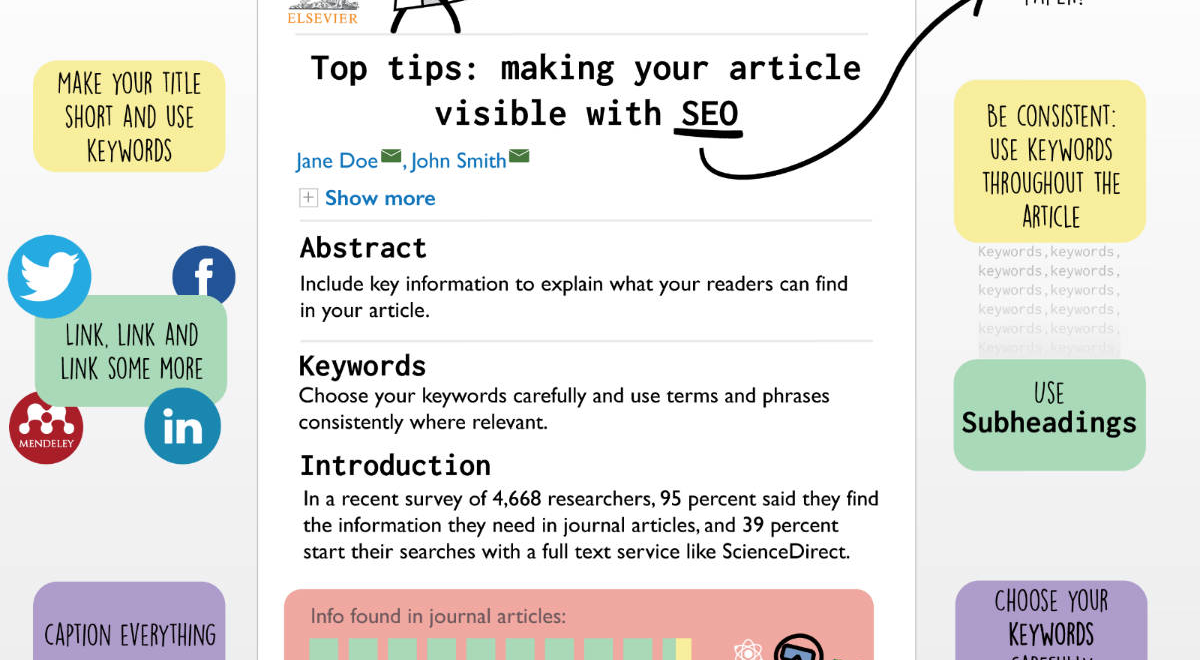Further information about author identifiers and digital identity management for research.

Writing scientific articles
Hone your academic writing skills
Structural and language aspects are fundamental for getting an article accepted, as they are the factors that the publisher considers when performing an initial screen of the article and deciding whether to pass it on to the reviewers.
Language quality
Some useful resources:
Make it easier to find your article
The idea is to prepare the article to make it easy to find in search engines (academic SEO).
The following aspects should be considered:
- Analyse the titles of similar articles in the databases.
- Use subtitles that reinforce the key idea.
- Carefully select the keywords that describe the article: consult the thesaurus and keywords used by similar articles.
- When writing the abstract, state the research's basic components and include the keywords that you want the search engines to find.
- Use titles for tables, images and figures.
- Give priority to the use of tables and figures to make the contents searchable; the image format (.jpg, .png) does not allow this.
The following image is a summary in diagram form of the actions listed above.

(Source: Elsevier Publishing Campus)
Manage the bibliography
A key factor for the publication's success is to draw up the reference list in accordance with the format used by each journal.
- Bibliographical citation: resources for finding out how to cite a bibliographic reference correctly, plus applications that generate citations automatically.
- Bibliography managers: tools for managing bibliographic references.
Decide how to sign the article
When signing the article, a number of aspects should be taken into account:
Identify your affiliation with the institution
Reflect on how to sign co-authored articles
Activate and use the ORCID identifier
We recommend that researchers obtain an ORCID iD and include it in the signature of their publications.
It is linked to a large number of leading databases, publishers, and institutes and agencies for research funding and accreditation, both to reference publications and to export information to the CVs that researchers keep in ORCID.
To get the most out of your ORCID iD, we recommend:
- Including the ORCID iD in GIR.
- Including the ORCID iD in your signature and personal websites.
- Including the ORCID iD in submissions to publishers.
- Including the ORCID iD in calls and submissions for research project accreditation and grants.

